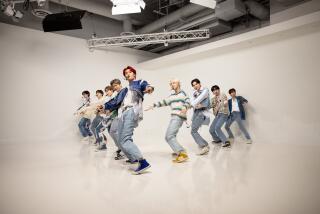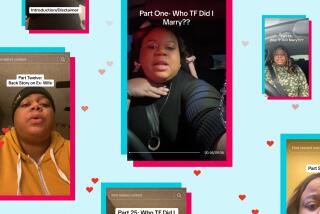K-pop fans, maestros of social media, bring their powers to bear on #BlackLivesMatter activism
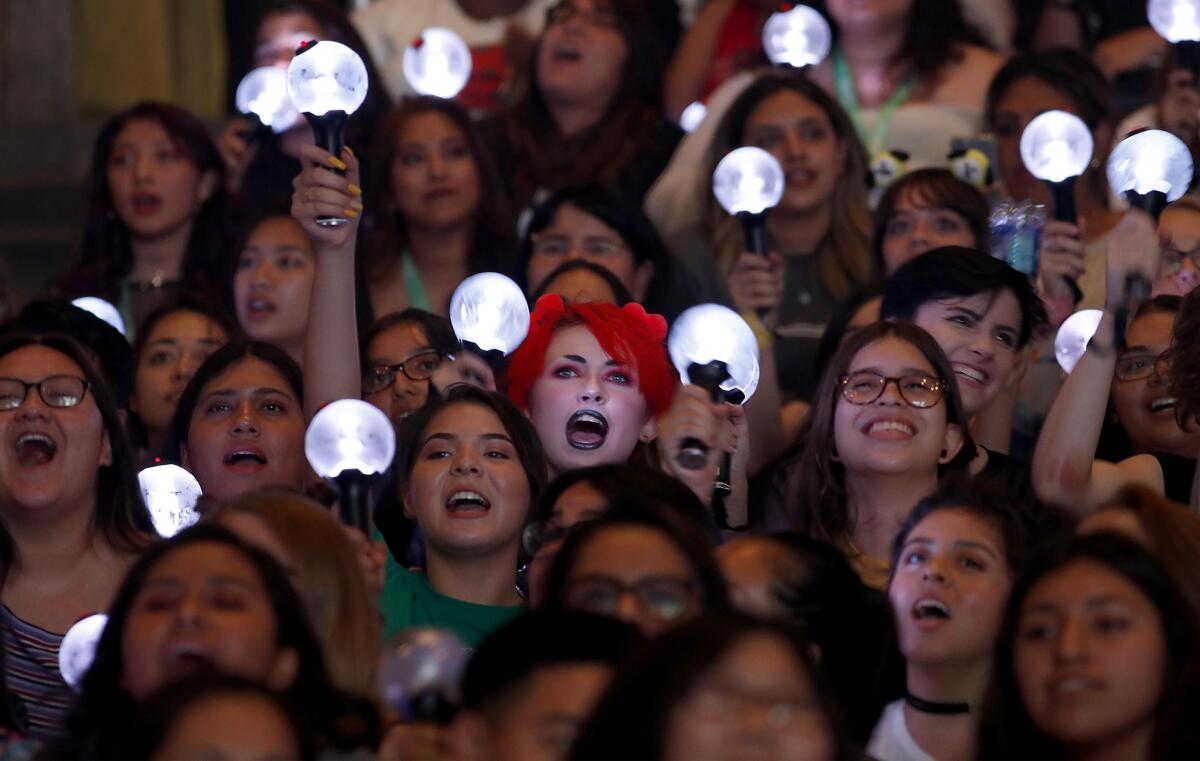
SEOUL — Katya Grossman couldn’t march in the U.S. protests against police violence and racism, but, with a few keystrokes, she raised a six-figure sum for the cause by tapping into a massive, impassioned, international platform at her fingertips: K-pop fandom.
That a chronically ill college senior from a small town in Hudson Valley, N.Y., could instantly connect to the global outrage over the death of George Floyd is a testament to the power and allure of South Korean boy bands and their legions of social-media-clever fans.
The 21-year-old sat on her bed and typed out a challenge to the 3,000 followers on her fan account for boy band BTS: “You buy 7 copies of the same album and then say you’re ‘poor’! You can donate a dollar!” she wrote, linking to an online fundraising page for a young women’s political action group in Minnesota. She listed what she thought was a moonshot goal — $1,000.
As of Thursday, she’d raised more than $150,000.
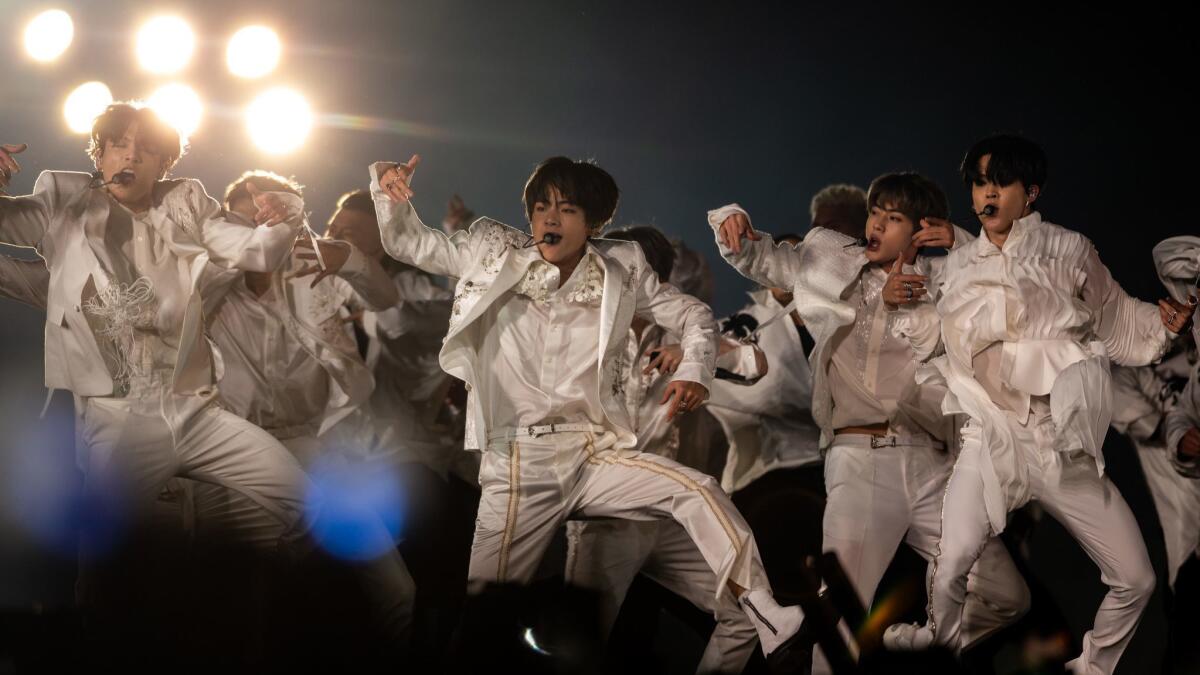
Dominating on social media is at the heart of the avid worldwide fandom of the Korean pop music. Fans have gained notoriety over the years for carpet-bombing Twitter timelines and Instagram feeds in support of stars or groups they like, promoting new songs or albums the minute they’re released or circulating videos and photos of their “faves.” They’ve been known to strategically stream YouTube videos for hours on end, or rain abuse on anyone making negative comments about groups they support.
In recent days, many of them have unleashed their online prowess toward supporting Black Lives Matter protests — crashing police tip lines, circulating petitions and fundraising pages, amplifying activists’ messages. They took over hashtags including #WhiteLivesMatter to drown out those opposing the protests.
“We’re known for our antics,” said Grossman, who was turned onto K-pop about a year ago through the group Blackpink and later became a devout BTS fan. “We dedicate to things. It’s very obsessive, our support or not-support of things.”
She was among the K-pop fans who responded to a request from the Dallas Police Department for videos of “illegal activity from the protests” by sending in K-pop videos instead, causing the department’s app to crash. Grossman sent in more than 10 videos, some of them of Choi Soobin, from the group TXT, dancing.
The hacker activist group Anonymous took note, writing on Twitter: “K-Pop armies have now been weaponized against the State.”
While music has helped propel social movements throughout history, the carefully crafted, commercialized world of K-pop has largely steered clear of political and social issues in the interest of preserving mass appeal and avoiding even a whiff of scandal. Groomed from a young age for stardom by agencies, stars rarely voice political opinions, and when they do, they’ve occasionally met with backlash from fans or repercussions from music labels.
That hasn’t stopped fans — many of whom are Gen Z digital natives perhaps experiencing their first social awakening — from emerging as a force to be reckoned with in the latest conversations over race and justice in the U.S.
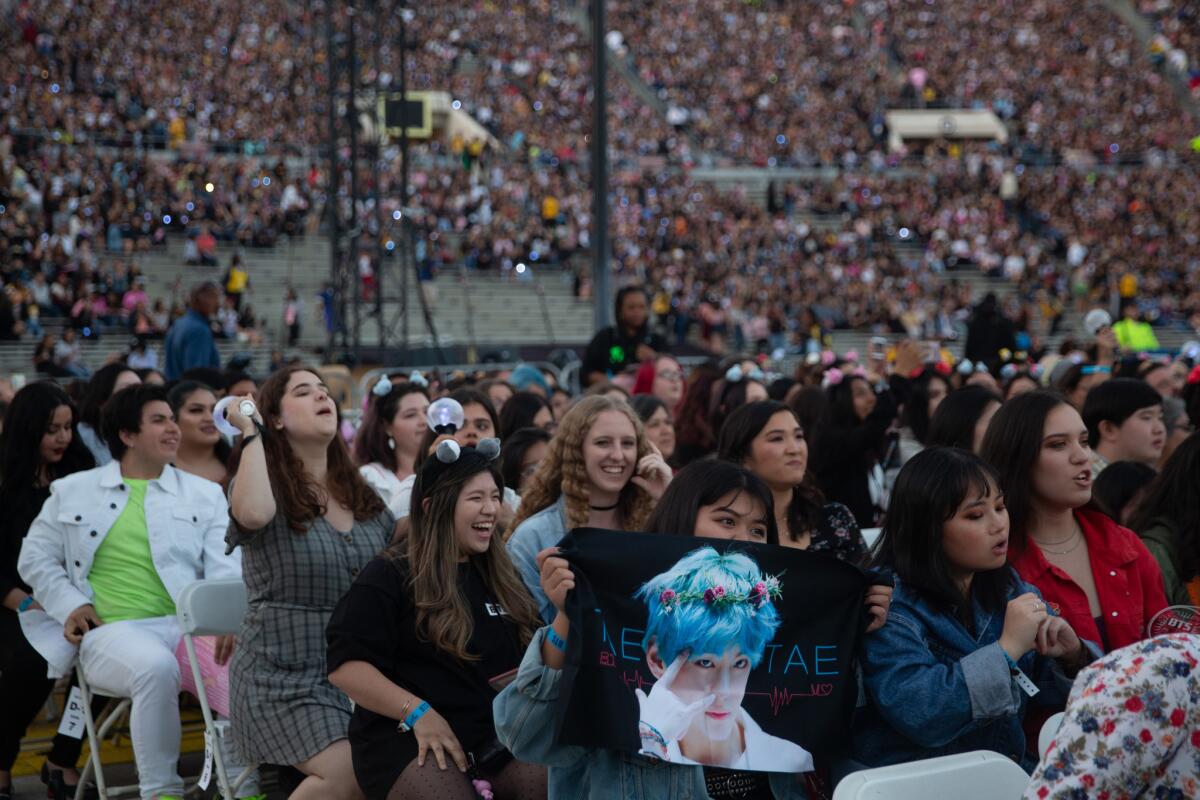
“We’re a huge audience,” said 19-year-old Louisianne Momavuli, a BTS fan based in London, who said she felt compelled to speak up, donate to bail funds and support protests in the U.S. after watching videos from fellow black BTS fans protesting in American streets. “We’re all over the world. It’s so cool to all come together in one place.”
Jiyoung Lee, a 49-year-old South Korean philosophy professor and BTS fan, said the global network of fans had in recent years tapped their social media organizing skills to get messages out about the pro-democracy protests in Hong Kong and crackdowns on student protests in Bangladesh in 2018.
This week, she called on K-pop fans in South Korea to back fellow fans in the U.S., noting that South Korea has experience with large-scale protests against authoritarianism.
“We know so well, the scene of protests engulfed in fear and rage,” she wrote in Korean on Twitter, urging South Korean fans to support the Black Lives Matter movement. “It may give a bit of encouragement for us to show them we’re with them, even if just in spirit.”
Lee, who wrote a book on BTS, said coordinated action on social media for K-pop fans occurred organically. Fans vote for the groups they support and tweet about them in order to boost their rank on Billboard’s “Social 50” chart, which is based on social media metrics. But the recent political activism was born of fans connecting with one another beyond cultures and borders.
“It’s a very fluid and loose organization. At any given time, a new core will emerge, then disappear,” she said. “Behind each and every fan account is a person. A person not unlike those out there protesting, reacting as a human being.”
Grossman, the college senior, said based on years of experience of promoting their favorite stars, when the need for their platform arose, K-pop fans knew instinctively what to do.
“It’s like a tacit agreement,” she said. “We just know.”
More to Read
Sign up for Essential California
The most important California stories and recommendations in your inbox every morning.
You may occasionally receive promotional content from the Los Angeles Times.

